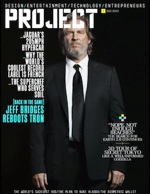 On PBS’s MediaShift, Susan Currie Sivek has a great article summing up the effect that the iPad and other digital technologies had on magazines in 2010.
On PBS’s MediaShift, Susan Currie Sivek has a great article summing up the effect that the iPad and other digital technologies had on magazines in 2010.
She starts by looking at magazine apps for the iPad: Zinio, Wired (which sold 105,000 copies in June, but was down to 32,000 by the month of September), and more. A number of these magazines are only showing 1 to 2 percent of newsstand sales for their apps.
Users have been by and large unimpressed by iPad selections, calling the reading experience only “somewhat better or about the same” than print or computer editions, and balking at higher prices.
Users of iPad magazines have also criticized what they see as a lack of creativity and technological savvy in designing usable, intriguing magazine apps for the iPad. Today’s magazine apps tend to be dull, clunky replicas of print magazine pages that don’t let readers share content via social media or even email. Despite being designed only for the iPad, even Project, the much-anticipated iPad-only magazine from Richard Branson’s Virgin Digital Publishing, was disliked by some readers for its awkward interface and its insistence on re-creating the print page experience.
Civek also brings up the lack of subscriptions as a major drawback, and mention the efforts of major publishers to develop their own digital newsstands in competition to Apple.
But the iPad is not the only digital issue affecting magazines. The article also brings up the Cooks Source incident, which we covered in several pieces here, and a similar, less-reported incident in which another small magazine used blogger content without permission. Another issue affecting magazine credibility is the use of paid sponsor blogs along with regular magazine content, potentially confusing advertising and content.
And finally, the piece covers the rise of “magazine-like” digital content, such as social network reading app Flipboard. In addition to presenting social network content in a magazine-like way, it also now includes some traditional print magazines via Flipboard Pages.
For 2011, Civek expects to see more independent, targeted-interest magazines, made with the same tools that are making self-publishing attractive to individual writers—print-on-demand, the web, etc.































I think multi-platform apps will be the hot button of 2011. Kobo, Kindle and Zinio all have appeal because you can view purchases on the iPad, iPod, computer and other devices without having to pay again and have a second or third version of something cluttering up your computer. I recently saw an iPad-only version of a cookbook app I had bought already on the iPod touch and I was furious that they expect me to pay again to use it on a different device. I would rather give up some fancy features of an iPad-only option in devour of an iOS universal app you only pay once for! Lesson learned. I will only buy content once and I won’t buy anything that is a special app or program or thing Incan only use on one of my devices.